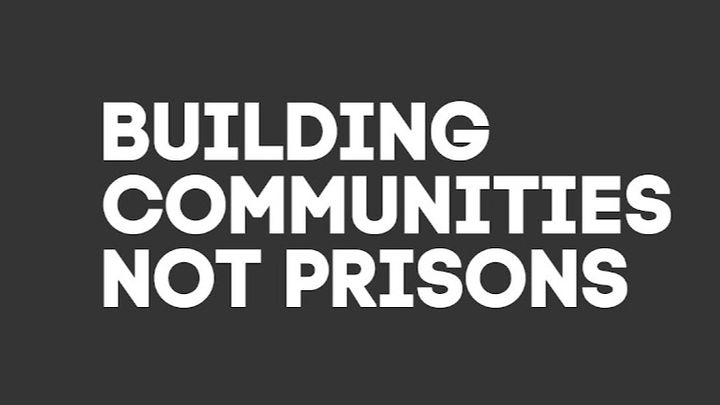
Women and Gender Diverse Transitional Housing
Homeless Women in Our Community Need Your Help
PROTECT WOMEN AGAINST CRIMINALIZATION AND VICTIMIZATION
THROUGH COMMUNITY CARE INITIATIVES
The Elizabeth Fry Society of Northwestern Ontario is requesting Urgent help from our community!! This is in response to a critical need to provide a supportive space for homeless and precariously housed women and gender diverse people in the northwest. In 2019 the Elizabeth Fry Society, in collaboration with Lakehead University, conducted some research highlighting an acute need for temporary housing in Thunder Bay. Current Canadian research has indicated that access to secure housing is a robust protective factor against crime and incarceration and a strong social determinant of health.
Upon discharge from prison, women encounter insurmountable barriers
to accessing housing in private and non-profit housing markets. The Covid
pandemic exacerbated this problem, and the homelessness crisis reached epic
proportions in Thunder Bay. The Elizabeth Fry Society of NWO responded by opening a four-unit transition residence in Thunder Bay in May 2021, with the assistance of one-time Covid-19 relief funds from the Thunder Bay District Social Services Board.
The over-incarceration of Indigenous women in prison has been called “unconscionable” by the Correctional Investigator of Canada. Judges and advocates alike have decried the injustice of further punishing Indigenous people with prison sentences when they have been victims of intergenerational trauma due to residential schools and the colonial agenda that stripped them of their rights.
47% of the people interviewed in the 2021 Thunder Bay Point in Time Count of homeless people had recently been incarcerated.
We are now looking to expand our capacity to offer temporary housing to include single women and women with children. With your help, we are investing in a residence with 8-10 housing units. This will allow this critical work to continue in our community. We acknowledge that secure housing is more than roofs over heads; It is a place to call home; it is safe, secure, and affordable even when it is temporary. In addition, our specialized Circle of Care allows us to support residents in addressing immediate crises and transition to their goals of independent living.
The Elizabeth Fry Society of Northwestern Ontario provides advocacy and integrated support services that prevent criminalization, incarceration, and recidivism. Our ‘Circle of Care’ team advocates with and for women and gender diverse people through responsive, compassionate and non-judgemental support. We undertake a gendered, culturally sensitive and trauma-informed approach when working with clients and their families. This approach helps empower individuals to build confidence and acknowledge their resilience in restoring their own lives.
90 % of Indigenous women and 87% of non-Indigenous women in prison have experienced physical or sexual violence in their past. These women who have experienced trauma and gender-based violence may not be able to get the shelter or support needed from Violence against Women’s Shelters.
Our current goal is to raise $500,000 toward the cost of building and to operate a transition house. Your contributions, great or small, will help us build a safe and just community.
~When women are empowered, they can heal their families, and healthy families can help communities heal. ~
Reference links from research below.
2. Government of Canada Department of Justice. (2020). Overrepresentation of Indigenous People in the Canadian Criminal Justice System: Causes and Responses. Accessed February 21, 2022 from: https://www.justice.gc.ca/eng/rp-pr/jr/oip-cjs/p4.html
3. Mckay, J. House of commons of Canada Chair. (2021). SYSTEMIC RACISM IN POLICING IN CANADA Report of the Standing Committee on Public Safety and National Security. Accessed February 21, 2022 from: https://www.ourcommons.ca/Content/Committee/432/SECU/Reports/RP11434998/securp06/securp06-e.pdf
4. Dingwall, G. (2021). Welcome Home: Using Housing to Address Recidivism among Indigenous People in Canada. The Centre for Human Rights and Legal Pluralism working Paper series. The Centre for Human Rights and Legal Pluralism. Accessed February 21, 2022 from: https://www.mcgill.ca/humanrights/files/humanrights/dingwall_ihrip_v9_2021.pdf
5. Somers JM, Rezansoff SN, Moniruzzaman A, Palepu A, Patterson M (2013). Housing First Reduces Re-offending among Formerly Homeless Adults with Mental Disorders: Results of a Randomized Controlled Trial. PLoS ONE 8(9): e72946. doi:10.1371/journal.pone.0072946 Accessed February 21, 2022 from:
6. Waterloo Crime Prevention Council Chair 2015 as cited in: Waterloo Crime Prevention Council (2017). Root Causes Approaches to Crime. Accessed February 21, 2022 from: http://preventingcrime.ca/wp-content/uploads/2017/09/Roots-of-Crime_2017.pdf
7. Lawson, H. (2021). Decriminalizing Race The case for investing in community and social support for imprisoned racialized women in Canada Canadian. Centre for Policy Alternatives. Accessed February 15, 2022 from: https://www.policyalternatives.ca/publications/reports/decriminalizing-race
Organizer
Elizabeth Fry Society Northwestern Ontario
Beneficiary